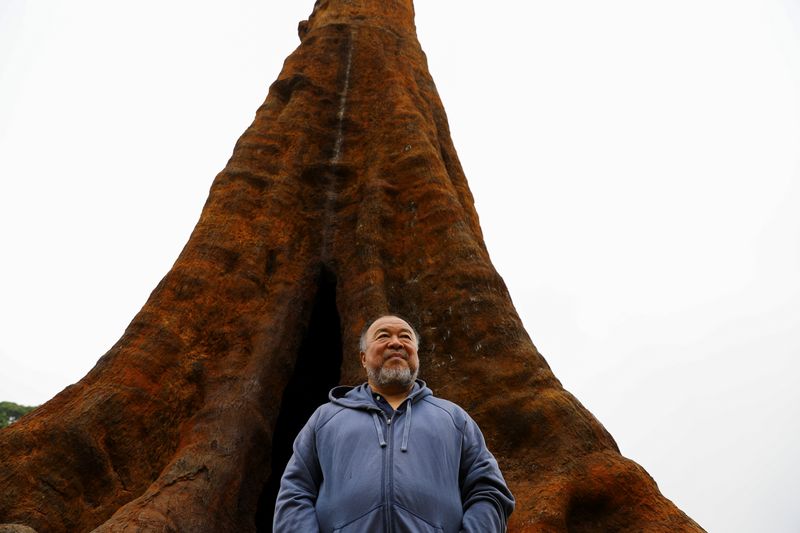ZURICH (Reuters) -Credit Suisse closed a bank account of dissident Chinese artist Ai Weiwei because of missing paperwork, it said on Saturday, responding to his accusation that the Swiss bank had shut him out as part of a strategy to win business in China.
“The bank’s decision was made in spring 2021 because Mr Weiwei did not provide legally required information despite repeated requests from the bank,” the bank said in a statement to Reuters.
“The termination of the client relationship was justified by business reasons,” it added, confirming comments made in an earlier report in Swiss newspaper Tages-Anzeiger.
The newspaper wrote on Saturday that Credit Suisse had changed its position from earlier comments to Ai that it had decided to close the artist’s bank account because he had been convicted of crimes.
No rule exists that people with criminal convictions can have their bank accounts closed, the newspaper said, while Ai has never been convicted or charged.
In February, Ai answered detailed questions about his income, domicile and expenses from Credit Suisse, the Tages-Anzeiger added.
“So why was Credit Suisse using my ‘crime’ as its reason to terminate my bank account? Not long ago the institution announced that it was accelerating its recruitment of employees in China,” Ai wrote in September on website artnet.com
“At the same time, it would be seeking to take majority control of its joint ventures in the securities market and to apply for a license that would allow it to expand its business in both personal and investment banking.”
Ai, who spent 81 days in detention in China in 2011, later told Reuters https://www.reuters.com/world/china/chinese-activist-ai-weiwei-says-credit-suisse-closing-his-foundations-bank-2021-09-07: “Even if they do reverse this decision, I am not willing to be associated with a bank which has such a strange relationship with China.”
The 64-year-old is one of China’s highest-profile artists and political activists, and helped design the 2008 Beijing Olympics Bird’s Nest stadium before falling out with the Chinese authorities. He now lives in Portugal.
He did not respond to a Reuters request for comment on Saturday.
(Reporting by John Revill; Editing by Peter Graff and Jan Harvey)


























